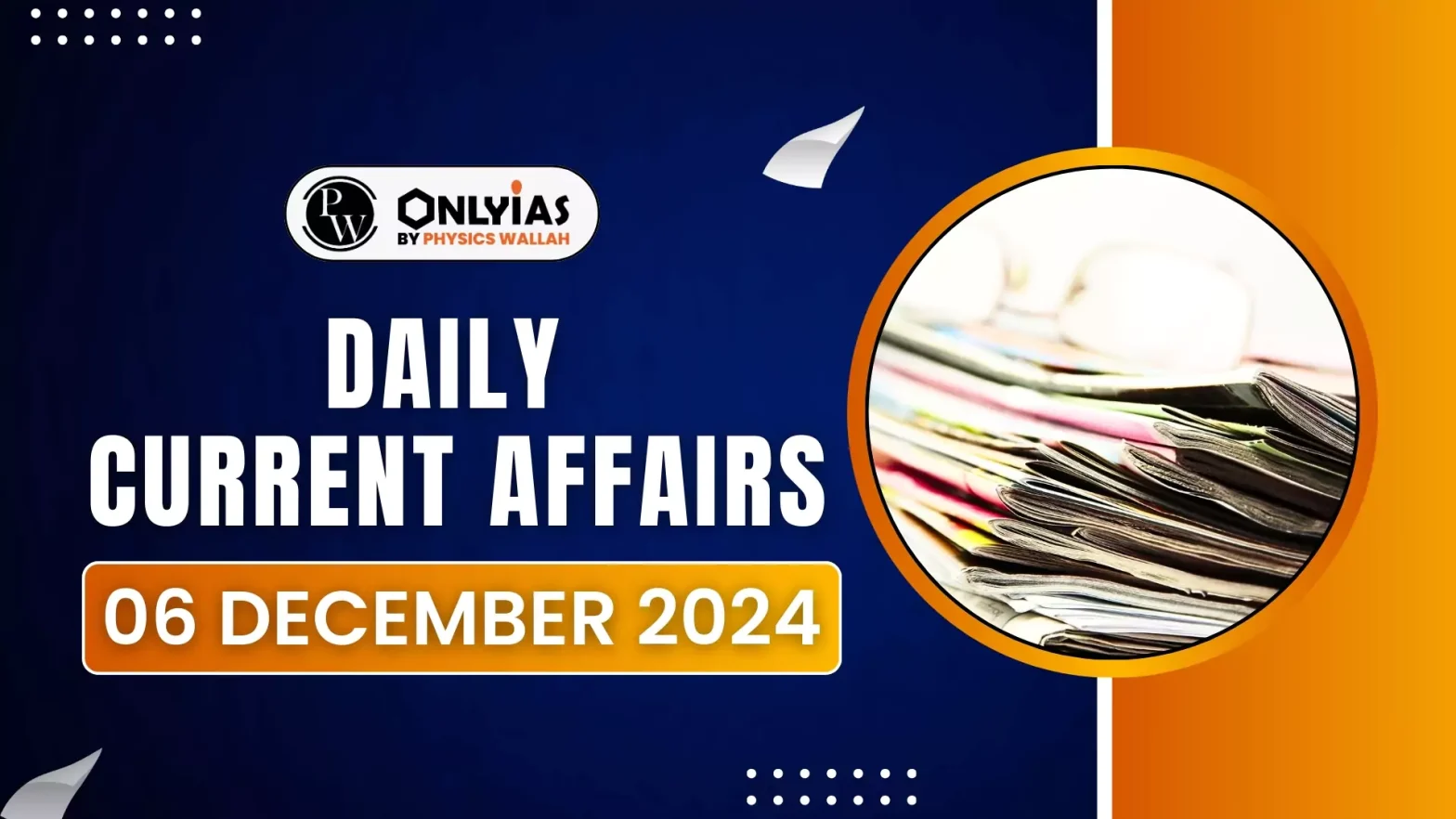The Parliament has recently passed the Bharatiya Vayuyan Vidheyak Bill, 2024, aimed to provide some relief to aviation personnel in their licensing processes.
Key Highlights of the Bharatiya Vayuyan Vidheyak Bill, 2024
- Replaces Aircraft Act, 1934: The Bill seeks to replace the Aircraft Act, 1934.
- The Bill retains the regulatory structure under the Act.
- The Aircraft Act, 1934 is a foundational legislation in India that regulates the manufacture, possession, use, operation, and safety of aircraft.
Enroll now for UPSC Online Classes
Organisational Set Up Under Ministry of Civil Aviation
- Directorate General of Civil Aviation (DGCA): Regulates civil aviation safety, issues licenses, and oversees compliance with international standards.
- The DGCA also co-ordinates all regulatory functions with the International Civil Aviation Organisation (ICAO).
- Bureau of Civil Aviation Security (BCAS): It is a Statutory body to ensure aviation security standards, develops security measures, and monitors their implementation.
- Airports Economic Regulatory Authority of India (AERA): Regulates tariffs and other charges for aeronautical services at major airports, ensures fair trade practices.
- Airports Authority of India (AAI): Manages and operates airports across India, ensures safe air navigation services.
- Aircraft Accident Investigation Bureau (AAIB): Investigates aviation accidents and incidents to improve safety standards.
|
- The Bill Retains Key Aviation Regulatory Bodies: The Act sets up:
- Directorate General of Civil Aviation (DGCA) for overseeing safety and performing regulatory functions,
- Bureau of Civil Aviation Security (BCAS) for overseeing security,
- Aircraft Accident Investigation Bureau (AAIB) for investigating accidents.
- The Central government will exercise superintendence over these bodies.
- It may review or modify their orders.
- The Bill retains these provisions.
- Regulation of Aircraft Related Activities: The Bill adds power to regulate the design of aircraft, as well as the places where they are being designed, in addition to retaining provisions for their manufacture, repair and maintenance.
- Offences and Penalties: Offences include:
- Flying an aircraft dangerously,
- Carrying arms or explosives in an aircraft,
- Depositing rubbish or slaughtering animals near airports.
- These are punishable with imprisonment of up to three years, a fine up to one crore rupees, or both.
- Introduction of Second Appeal Provision: The Bill introduces a provision for a second appeal against decisions related to the imposition of penalties for violating Rules under it.
- Transfer of Licensing Responsibilities to DGCA: The Bill shifts the responsibility for the Radio Telephone Operator Restricted (RTR) certificate and licensing process from the Department of Telecom (DoT) to the Directorate General of Civil Aviation (DGCA).
- This transition creates a single-window clearance system, streamlining certification processes for aviation personnel, including aircraft maintenance engineers, flight dispatchers, and pilots.
- Addressing Corruption in Licensing Exams: By moving the RTR exam under the DGCA’s purview, the Bill aims to tackle allegations of corruption previously associated with the DoT, where candidates, including trainee pilots, were reportedly subjected to demands for hefty bribes.
Check Out UPSC NCERT Textbooks From PW Store
Key Issues of the Bharatiya Vayuyan Vidheyak Bill, 2024
- DGCA Under Direct Government Control: The DGCA, tasked with regulatory functions and safety oversight, operates under the central government’s direct supervision.
- The government can modify or cancel DGCA orders, and its directions to the DGCA are binding.
- The Bill does not specify:
- Qualifications for the Director General.
- Selection process for the position.
- Tenure of the Director General’s service.
- Unlike other independent regulators in sectors like telecom, electricity, and insurance, the DGCA lacks autonomy and functions more like a government department.
- Power for government to unilaterally appoint Arbitrator may violate right to equality:
- The Act allows the government to direct demolition or modification of structures near airports and provides for compensation.
- If no agreement is reached, the government appoints an arbitrator, who must be qualified to serve as a High Court Judge.
- The Bill specifically states that the Arbitration and Conciliation Act, 1996 will not apply to arbitrations under the Bill.
- The Arbitration and Conciliation Act, 1996 typically governs arbitration processes in India.
- The Supreme Court (2024) ruled that unilateral appointment of arbitrators by one party violates Article 14 of the Constitution (Right to Equality).
- Criminal Penalties through Executive Rules: The Bill enables the central government to impose criminal penalties for violations of certain rules.
- Delegating such authority to the Executive may breach the principle of separation of powers, as the Legislature should decide on criminal offences and penalties.
![]() 6 Dec 2024
6 Dec 2024
